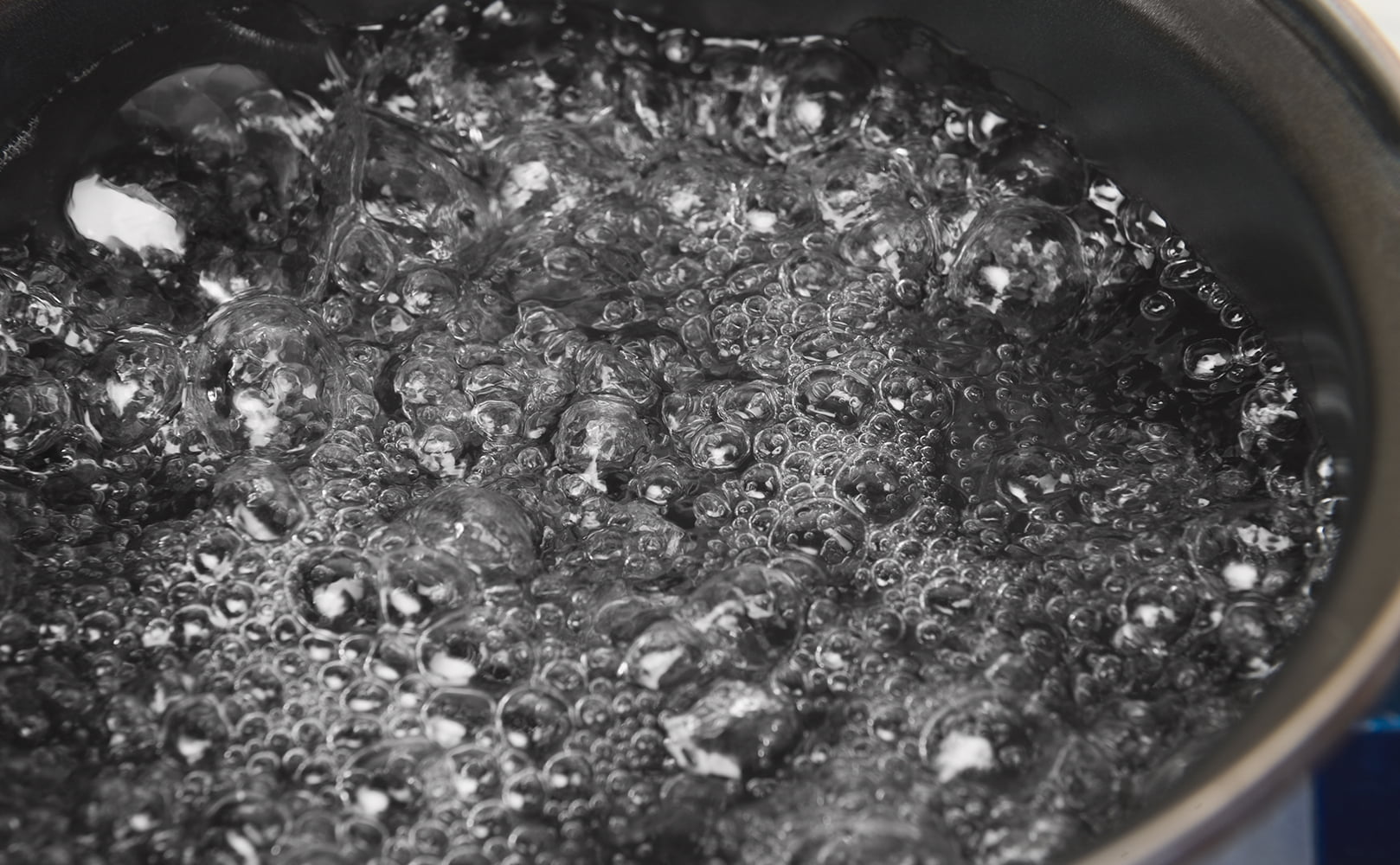Can You Boil Reverse Osmosis Water for Drinking? Is It Safe?
Written by: Alexandra Uta // Last Updated: Jan 17, 2023
This page may contain affiliate links. If you buy a product or service through such a link we earn a commission at no extra cost to you. Learn more.
You have your brand new RO system set up and ready to use.
You fill the kettle and switch it on, ready to make a hot cup of tea, and the thought hits you…are you supposed to be boiling this water? Is it safe to boil RO water? Should I usually be boiling RO water, or can I drink it as it is?
These little things may not be listed in your reverse osmosis system user manual, but luckily, we are here to help.
Key Takeaways
- Boiling RO water is perfectly safe, and you can do it if you want to, but it is usually unnecessary.
- RO systems remove most unhealthy contaminants from water including microbes, leaving further purification unnecessary.
- The only case when you want to consider boiling your RO water is when there’s a boil water advisory.
Can You Boil RO Water for Drinking? Is It Safe?
Yes, you can boil RO water for drinking, but it is pointless in most circumstances.
RO water is perfectly safe already, boiled or not boiled.
Boiling will only benefit the water during a boil water advisory or if your RO system has not been appropriately maintained.
That said, if you want to boil, then there are no disadvantages, and the water is safe for use once cooled.
Is It Necessary to Boil Reverse Osmosis Water?
It is not necessary to boil reverse osmosis water under most circumstances. If there is a boil water advisory, and you can’t be 100% sure that your system is working effectively to filter pathogens, then that is the only time boiling RO water might be necessary.
That, or if you are making a hot cup of tea.
What Is Reverse Osmosis and What Does It Remove from Water?
Reverse osmosis is a process that separates water molecules from contaminants in the water.
It works by pushing source water through a semipermeable membrane that has pores small enough to allow tiny H2O molecules through, but too small to let bigger contaminants pass to the other side.
The larger molecules are left on the entry side of the membrane and discarded with the wastewater.
A reverse osmosis system will remove sediment, chlorine, and overall chemicals with pre-filters before the water moves through the semipermeable membrane. If the system comes with a post-filter, which it usually does, the water will pass through that to remove bad taste and odor before coming through the RO faucet or being stored in a tank.
Depending on the RO system, they can have 4, 5, or even 6+ different stages of filtration. Combined they remove:
- Sediments and other dirt particles
- Chlorine, chloramine
- Disinfection byproducts
- VOCs
- Nitrite/nitrates
- Pesticides
- Heavy metals – think lead
- Metalloids such as arsenic
- Transition metals like chromium 6
- Salts & minerals
- PFAS
- Microorganisms
- And all sorts of other chemicals and TDS
Pros & Cons
There are both pros and cons to using a reverse osmosis system.
For one, they are very effective at reducing contaminants and removing hundreds of impurities; they are also easy to install and maintain and can improve water aesthetics.
Still, some do create a lot of wastewater (a gallon for every 4 gallons filtered!). They also remove healthy minerals from the water, which could lead to mineral deficiencies if you are not getting them from food sources.
What Does Boiling Remove from Water?
Boiling water really doesn’t remove things from water; it only kills microbes and pathogens. Any other toxic elements like arsenic, lead, fluoride, and heavy metals remain in the water, sometimes at an even more concentrated level.
All that boiling may reduce are levels of volatile chemicals, but that also depends on the boiling process itself.
If you have any questions about boiling RO water please don’t hesitate to leave a comment below!
Information provided on BOS is for educational purposes only. The products and services we review may not be right for your individual circumstances.
We adhere to strict editorial guidelines. Rest assured, the opinions expressed have not been provided, reviewed, or otherwise endorsed by our partners – they are unbiased, independent, and the author’s alone. Our licensed experts fact-check all content for accuracy. It is accurate as of the date posted and to the best of our knowledge.


